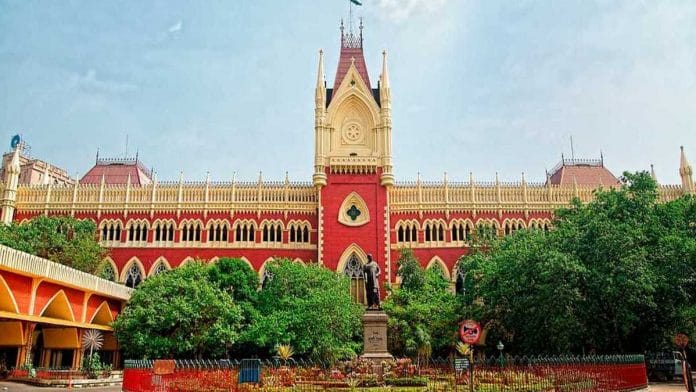Kolkata: In a first such instance, the Calcutta High Court Wednesday approved a plea for live-streaming of court proceedings in a case of rights filed by a Parsi woman.
Even though, in September 2018, a three-judge bench of the Supreme Court set the stage for live-streaming of court proceedings in cases of Constitutional importance, the apex court had said during a hearing this month the issue would be dealt with by the Chief Justice of India on the administrative side.
A high court division bench of Justices Sanjib Banerjee and Kausik Chanda, however, ordered that the final hearing of the case, filed by the Parsi petitioner, will be live-streamed on YouTube. Significantly, the appeal was once turned down by the court in January 2019.
The case is on the Parsi woman’s plea seeking the court’s approval for her granddaughter’s entry into the fire temple, the Zoroastrian community’s place of worship. The Parsi community does not allow these rights to the children of people who married outside the community.
The petitioner has sought live-streaming of the proceedings on the grounds that “a matter of national importance impacting the public at large, and Parsi Zoroastrians in particular, is being heard and decided”.
Also read: Supreme Court upholds Modi govt’s SC/ST Amendment Act, says approval not needed for FIRs
Efforts to live-stream proceedings began in 2018
The efforts to live-stream court proceedings began in 2018.
Pushing for greater transparency in the judicial system, a three-member Supreme Court bench had directed the Modi government in September 2018 to frame rules and build adequate infrastructure for live-streaming of nationally-important cases.
Since then, the case has been heard multiple times by the Supreme Court, and the Modi government is still working on the modalities. On 4 February, the SC said that the issue related to the implementation of the 2018 verdict allowing live-streaming of constitutionally important cases would be dealt with by the Chief Justice of India on the administrative side.
The SC also stated that rules would be framed for this and the said project will be accordingly carried out in phases.
In the Parsi woman’s case, however, the Calcutta High Court has set a precedent in showing the way forward. The court said the modalities would be decided by the registrar of the original side, said advocate Phiroze Edulji, the petitioner’s counsel.
“These proceedings are of utmost importance to the Parsi Community all over the country and hence the Parsi Zoroastrian Association of Kolkata had prayed for live-streaming so that there can be access to justice,” added Edulji.
Legal experts said that the high court is within its rights to order the live-streaming.
“The Supreme Court decides on its orders, the high courts decide on theirs. There is no correlation,” said a renowned advocate of Calcutta High Court who did not want to be named.
“The Supreme Court takes its own call and the HCs take their own except on orders that are binding on a HC concerned. Moreover, this particular order is based on SC’s 2018 judgment.”
Retired Supreme Court judge Justice Ashok Ganguly said,”The high courts are not subordinate to the Supreme Court. The SC is just an appellate forum of the HCs. HCs can take decisions independently.”






